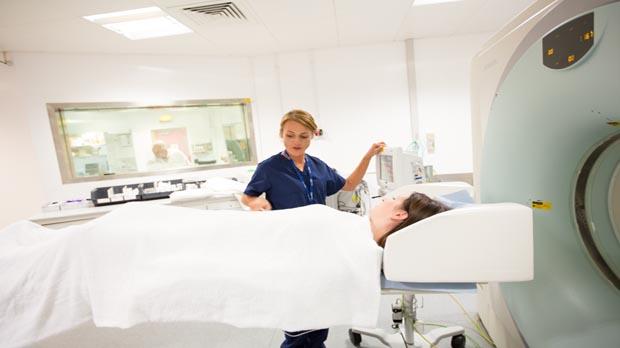
Last year in the UK over 60,000 cancer patients enrolled on clinical trials aimed at improving cancer treatments and making them available to all.
This study looked at the possible causes of stomach and food pipe cancer (oesophageal cancer).
Doctors already know that there are various risk factors for stomach cancer and for oesophageal cancer. The researchers wanted to learn more about these known risk factors and anything else that may contribute towards the development of these cancers.
The researchers collected saliva and blood samples and information about lifestyle from people with stomach cancer and oesophageal cancer. The researchers also asked the partners of those with cancer to provide saliva and blood samples. The partners provided the  for the study. The results of the 2 groups were compared.
for the study. The results of the 2 groups were compared.
The aims of the study were
The researchers mainly looked at people with oesophageal cancer and Barrett’s oesophagus.
The researchers looked at the results of people taking part in this study as well as the results of other similar studies carried out across Europe, Australia and North America. Out of a total of 14 studies
One area the trial team looked at was the fact that more men are affected by oesophageal cancer than women. They concluded that one reason for this may be hormones.
Hormones are natural substances made by glands and organs in our bodies. Hormones are carried in our blood stream and act as messengers between one part of our body and another. There are many different hormones in the body.
Two hormones are oestrogen and oxytocin. Although they are found in both men and women, they are found at higher levels in women. Oxytocin is released during childbirth and breastfeeding and oestrogen plays an important part in the female reproductive system and the development of breast tissue.
The researchers think that there may be various explanations why higher levels of oestrogen and oxytocin are associated with a lower risk of oesophageal cancer. For example, higher oxytocin levels in the oesophagus and stomach may mean that the cells here are less likely to become inflamed and are more likely to heal following damage. But at the moment this is a theory. They don’t know this for sure.
Although this study involved large numbers of people, the numbers of women taking part was low compared to the number of men. So this meant that the researchers could not make as useful a comparison between the genders as they hoped to.
These findings need to be confirmed and explained in further research.
The researchers also recognised that the studies mainly involved white Europeans and so it may not be possible to apply the results to the population as a whole (or to other ethnic groups).
We have based this summary on information from the research team. The information they sent us has been reviewed by independent specialists ( ) and published in a medical journal. The figures we quote above were provided by the trial team who did the research. We have not analysed the data ourselves.
) and published in a medical journal. The figures we quote above were provided by the trial team who did the research. We have not analysed the data ourselves.
Please note: In order to join a trial you will need to discuss it with your doctor, unless otherwise specified.
Professor Carlos Caldas
Cambridge University Hospitals NHS Foundation Trust
Cancer Research UK
Experimental Cancer Medicine Centre (ECMC)
NIHR Clinical Research Network: Cancer
If you have questions about the trial please contact our cancer information nurses
Freephone 0808 800 4040

Last year in the UK over 60,000 cancer patients enrolled on clinical trials aimed at improving cancer treatments and making them available to all.